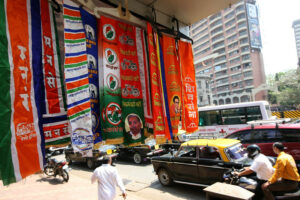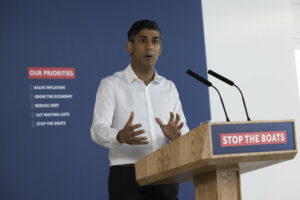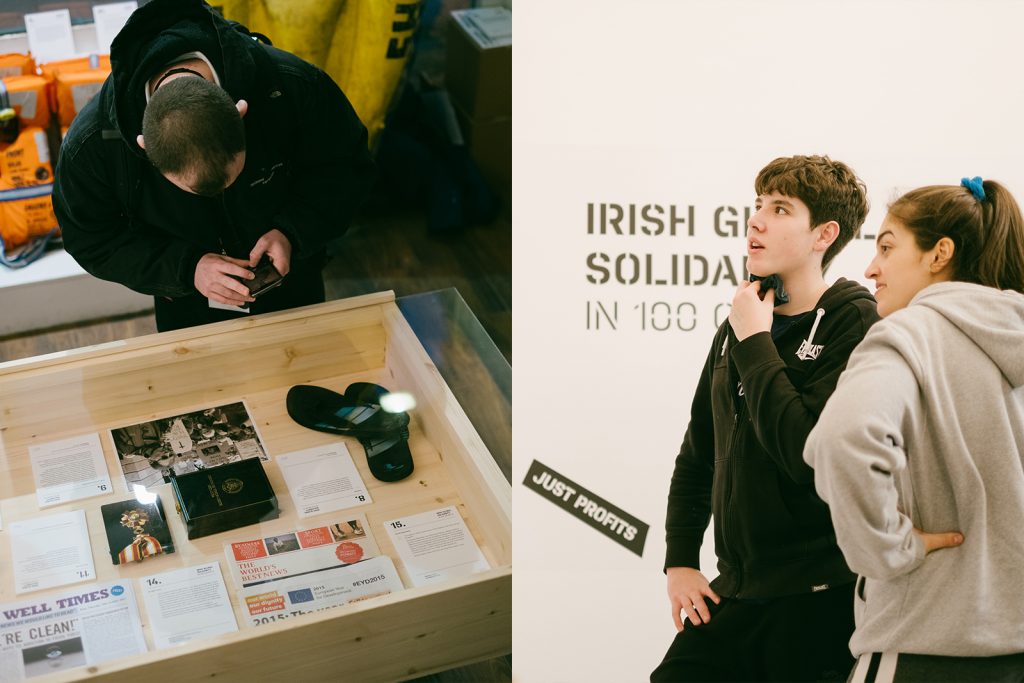Photo credit © Consciously consumed (Oct 6, 2011) by uusc4all via Flickr
What is Ethical Consumption?
Ethical Consumption is about making the connections between a product, where that product originated and in what context it has been produced. It requires YOU to think before you shop, to consider just how your lifestyle affects other people and communities, as well as the environment. An ethically-informed consumer realises that when they buy something, they are not only buying the product.
Ethical consumption is NOT about depriving yourself, nor is it a competition to see who has the most virtuous shopping list. It is about recognising the power that YOU have, as a consumer of goods and services, in influencing business to be more sustainable, ethical and accountable.
Ethical vs Unethical
If we talk about ‘Ethical consumption’ or ‘Fairtrade’, then we must consider whether ‘Unethical consumption’ and ‘Unfair’ trade’ also exist? And if they do exist, what constitutes them? Can we assume that any product not carrying the fair trade logo has been unfairly traded?
There is no easy answer to this question. The subjective nature of ethical consumption means that there is often disagreement over what makes a product ethical, and it is just as difficult to establish which products are unethical.
Ethics are essentially values and are dependent on a context. There are, however, certain basic ethical standards, which are universal: for example, it is can never be considered justifiable to subject workers to slave-like conditions, nor can trade in ‘blood diamonds’ or illegal logging, be regarded as in any way ethical. So, there appear to be certain obvious production methods that are distinctly unethical, although many grey areas exist – for example, let’s say that you live 10km away from work, in a remote village: you could, with some effort, cycle to and from work every day. Yet, if you chose to drive instead – would this be considered unethical?
The Evolution of Ethical Consumption
In the late 1700s a number of people began petitioning the UK’s government for better factory working conditions. The result, in 1802, was the Factory and Health and Morals Act. Although it significantly pre-dated the concept of ethical consumption as we know it today, it was arguably the first significant social justice movement of modern times.
Ethical consumption in its contemporary form began to take shape in the 1950s, as ‘fair trade’ initiatives began across North America. The ‘hippy’ movement of the 1960s encouraged individuals to think of themselves not only in terms of family, work and their community, but as consumers in their own right. As people grew more aware of the ethical implications of buying one product and not another, the ethical consumption model began to form in earnest. The first Alternative Trading Organisation (ATO) was established in the Netherlands in the 1960’s and was called S.O.S. Wereldhandel – ‘Wereldhandel’ meaning “world trade” and SOS standing for “Support Underdeveloped Regions”.
Why bother?
In our role as consumers of goods and services, we are essentially voting (making choices) with our pockets. Each time we make a purchase, we are contributing towards a company’s profits and giving that company (and its work practices) a thumbs up. When you buy a piece of clothing, the label won’t state on it that it’s been manufactured in a sweatshop in Bangladesh, nor will the fruit and vegetables you buy indicate that they have been unfairly traded – but this doesn’t change the fact that these products may well be unethical. Pleading ignorance doesn’t change this either – it still means that every cent contributed towards these practices is a vote in favour in continuing them.
By not shopping ethically – are we making a choice to perpetuate injustice and unsustainable growth models? There is a positive justification for ethical consumption. Supporting ethical businesses and initiatives can act as an agent of broad social and economic change. Buying fairly traded products begins to help in the readjustment of the trade imbalance between rich and poor states; ensuring that your furniture has been made with reclaimed timber encourages furniture makers to divert more resources towards such timber and less in unsustainable and sometimes illegal logging practices.
“A firm deviating from an accepted social norm like environmental protection, sound personnel policy, or avoidance of child labor, may risk punishment by consumers.”
Glazer, Kanniainen and Poutvaara
‘Voting with your pocket’ contains an inherent danger – in a consumer democracy, those with the deepest pockets get the most ‘votes’ – but by recognising the potential that consumer power has in effecting socio-economic change we are better able to control the type of world that we live in.
Authors: Bertrand Borg and Colm Regan (2008)
Updated: 24th February 2015 by Toni Pyke and Ciara Regan
Explore the online exhibition with 100 objects providing a snapshot of Irish engagement with global cultural, political and social issues over the past 50 years.

Protected: Under the Gavel: Are International Courts and Bodies Working?
There is no excerpt because this is a protected post.

Protected: Youth Rising: India’s Vote, India’s Future
There is no excerpt because this is a protected post.

30 smeach chárta ar líne: Bia, cothú agus an domhan
‘Foods’ stands for diversity, nutrition, affordability, and safety. A greater diversity of nutritious foods should be available in our fields, in our markets, and on our tables, for the benefit of all.

Extra-curricular Opportunities at Post-Primary Level
Fancy organising a workshop? Many NGOs have members of staff who do outreach and education visits to schools as part of their education programmes.

The aftermath of an earthquake: An educator’s guide
Teaching young people about natural disasters like earthquakes can be challenging, but it is important that they understand why they happen, and the progress humanity has made in limiting their damaging effects.

What the Fact: Is the United Kingdom descending into ‘mob rule’?
Amidst protests being attended by tens of thousands of people in the UK in recent months, Prime Minister Rishi Sunak claimed that there is a growing consensus that mob rule is replacing democratic rule. A fact check by Kai Evans.

